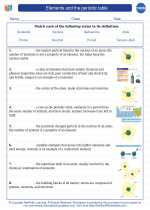Domesticated Animals
Domesticated animals are species that have been selectively bred and controlled by humans for various purposes, such as food, work, companionship, and research. The process of domestication involves manipulating the genetic makeup of wild animals through breeding and training to make them more tractable and useful to humans.
History of Domestication
The domestication of animals began over 10,000 years ago, with the first animals to be domesticated being dogs. Over time, other species, such as cats, cows, horses, and pigs, were also domesticated for different purposes.
Purposes of Domestication
Domesticated animals serve various purposes in human society:
- Food: Many domesticated animals are raised for their meat, milk, and eggs, providing a major source of nutrition for humans.
- Work: Animals like horses, oxen, and camels have been used for centuries to plow fields, transport goods, and perform other labor-intensive tasks.
- Companionship: Pets, such as dogs, cats, and birds, provide emotional support and companionship to humans.
- Research: Some animals, like mice and rats, are used in scientific research to study diseases and develop new treatments.
Examples of Domesticated Animals
There are numerous species of domesticated animals, each with its own unique characteristics and uses:
- Dogs: Domesticated for companionship, herding, hunting, and as service animals.
- Cats: Domesticated for companionship and pest control.
- Cows: Domesticated for dairy and meat production.
- Horses: Domesticated for transportation, agriculture, and sport.
- Pigs: Domesticated for meat production.
- Chickens: Domesticated for eggs and meat.
Impacts of Domestication
The domestication of animals has had significant impacts on human civilization, including improvements in agriculture, transportation, and companionship. However, it has also raised ethical concerns about animal welfare, environmental sustainability, and the spread of zoonotic diseases.
Study Guide
- What is domestication and how does it differ from taming?
- Discuss the roles of domesticated animals in different cultures and societies.
- Explain the process of selective breeding and its impact on domesticated animals.
- Compare and contrast the uses of domesticated animals for food, work, companionship, and research.
- Analyze the ethical considerations related to the domestication of animals.
By understanding the history, purposes, examples, and impacts of domesticated animals, we gain insight into the complex relationship between humans and the animal kingdom.
[Domesticated Animals] Related Worksheets and Study Guides:
.◂Chemistry Worksheets and Study Guides High School. Elements and the periodic table
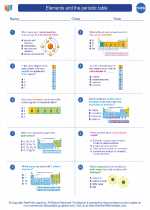
 Worksheet/Answer key
Worksheet/Answer key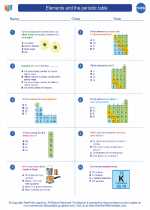
 Worksheet/Answer key
Worksheet/Answer key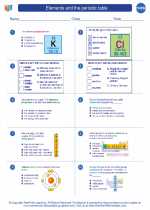
 Vocabulary/Answer key
Vocabulary/Answer key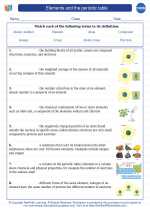
 Vocabulary/Answer key
Vocabulary/Answer key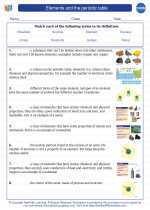
 Vocabulary/Answer key
Vocabulary/Answer key